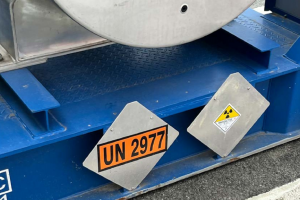Developer says £250m war chest will help firm take on major industry payers

Manchester developer Capital & Centric is building up a £250m war chest to take on the big house builders.
The firm which has hit the headlines for reserving some of its properties for Manchester residents in a bid to keep buy-to-let investors at bay is shifting its focus to high density housing built around Manchester’s public transport hubs.
Adam Higgins, co-founder and director of Capital & Centric, told a Built Environment Networking event in Manchester that a £250m funding package would create ‘a challenger to the likes of Barrett’.
Mr Higgins said Capital & Centric’s current projects include the Kampus development, which it is regenerating a 2.3 ha city centre site in the city centre.
The first phase of the scheme, which includes the conversion of a listed former mill building into 55 loft style apartments and a new town, has been on site for more than a year.
The development includes a further new element that is due to start on site in October after securing planning permission earlier this year.
Eddie Smith, strategic director of development at Manchester City Council, revealed at the event that the authority would not proceed with a residential redevelopment of Ancoats Central retail park.
The authority is now having a rethink about its plans for the Great Ancoats Street site, which is the city council’s ‘biggest ever acquisition’.
The Council is preparing to start the review this summer of its local plan when the Greater Manchester-wide spatial framework is also due to be published, whilst the authority is also developing plans for growth poles in the north, south and east of the city to help accommodate the expected increase in demand for development in Manchester over the next 30 years.
The area around Manchester airport has been lined up, with businesses already locating in nearby Wythenshawe town centre.
The northern gateway, along the A66 in Rochdale and Bury, is also providing opportunities for long-term investment, including a partnership with a Hong Kong based company to develop 15,000 homes.
In east Manchester the council is working with the Abu Dhabi investors on plans including what he described as ‘the world’s first sports business park’, which will be the home of Manchester Metropolitan University’s new sports campus.

Built Environment Conference
In terms of individual projects in the city, the ‘most important’ are the new HS2 stations at Piccadilly and Manchester Airport. The ‘under-used’ areas around Piccadilly have the potential to deliver 40-60,000 jobs and several thousand homes.
Kurt Partington, development manager at Salford Council, said that work is due to start on site at the 100 Embankment scheme next month, which is part of the Greengate development in the city centre, whilst permission has also been granted for the 44-storey Exchange Court development which will be Salford’s tallest building when complete.
Highways England are also examining options for upgrading J18 of the M60 at Simister Island but said they need to get a better understanding of Manchester council’s plans for the nearby proposed Northern Gateway.
Steve Jordan, assistant director at the University of Manchester, said Vinci had signed up to complete its Fallowfield’s student housing project following the collapse of the previous contractors Carillion.
The project, which has been delayed for three months, is still set to have half of the accommodation reopened by September next year.
Jordan also said the £100m Sir Henry Royce Institute for Advanced Materials is on site as part of the University’s estates development programme, which is currently being refreshed.
The £1bn programme includes the 85,000 sq m Manchester Engineering Campus Development, including a new teaching block, which he described as the ‘single biggest project in the city centre’.






